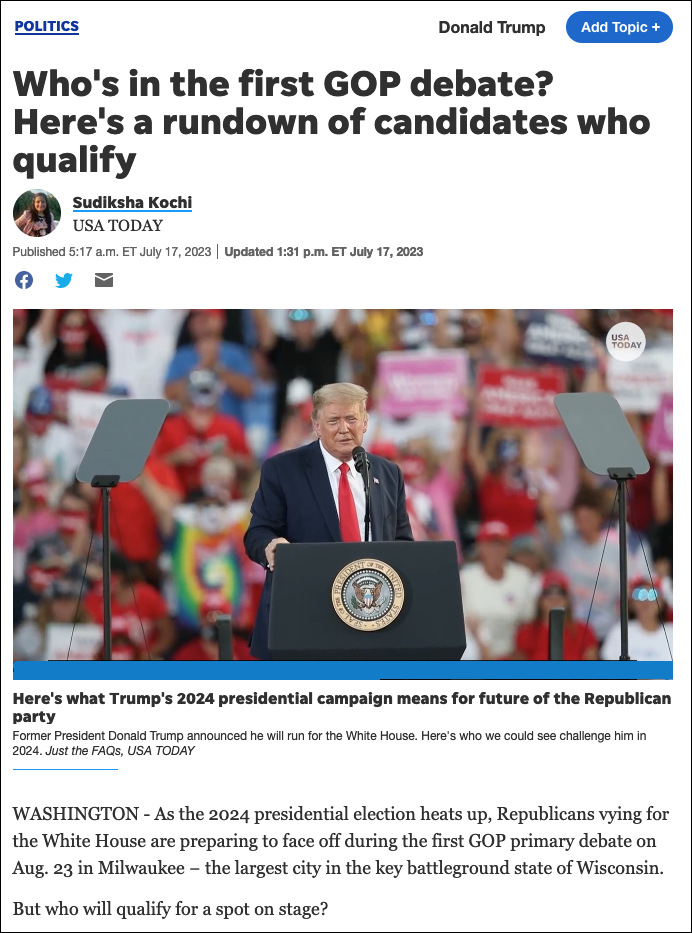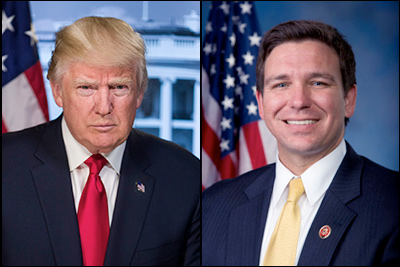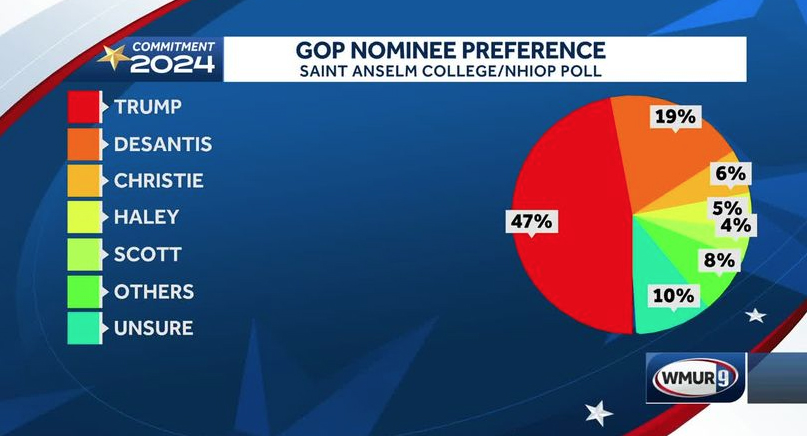By Jim Ellis — Friday, July 28, 2023
President
Presidential Trends: Biden, Trump Party Nominations Look Inevitable — Heading toward August of the off-year, we are seeing clear presidential trends already developing.President Joe Biden will be renominated. Despite Robert F. Kennedy Jr. being in the primary race and attracting some media attention, the Democratic process will almost assuredly be a non-event.
Trends are also clear for former President Donald Trump. He continues to lead in all polling and has actually gotten stronger within the party base after the series of indictments were leveled against him.
The Morning Consult data and research firm released a graph of the candidates’ progress from December of 2022 through the present. The latest result from their daily online track finds Trump now approaching 60 percent support nationally. In December, he was right at 50 support, but then generally dropped into the 40s through February but has continued to gain strength ever since.
The perennial second-place candidate, Florida Gov. Ron DeSantis, is now trending in the opposite direction. Beginning with 30 support national support in late December, Gov. DeSantis now finds himself languishing in the teens according to most GOP surveys.
The trajectory for most of the second-tier candidates has also been upward. Aside from Gov. DeSantis, who has fallen, and former Vice President Mike Pence and ex-UN Ambassador Nikki Haley, who have remained virtually stagnant, businessman Vivek Ramaswamy, Sen. Tim Scott (R-SC), and North Dakota Gov. Doug Burgum have all improved their standing. Ex-New Jersey Gov. Chris Christie has bolted onto the scene but appears to be running to deny Trump, and while he is moving into the middle of the pack, it is difficult to see how his support grows from the Republican Party’s relatively small “Never Trump” faction.
As we know, national polls do not deliver any delegate votes to the candidates. Those, of course, are won at the state level through public voting, so it is important to follow the state data to get a true indication of the nomination contest’s ebbs and flows.







